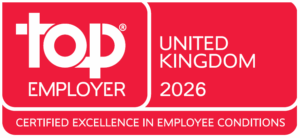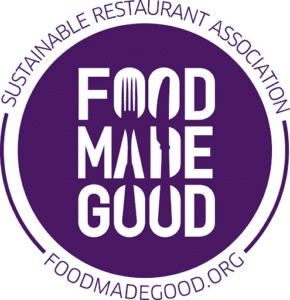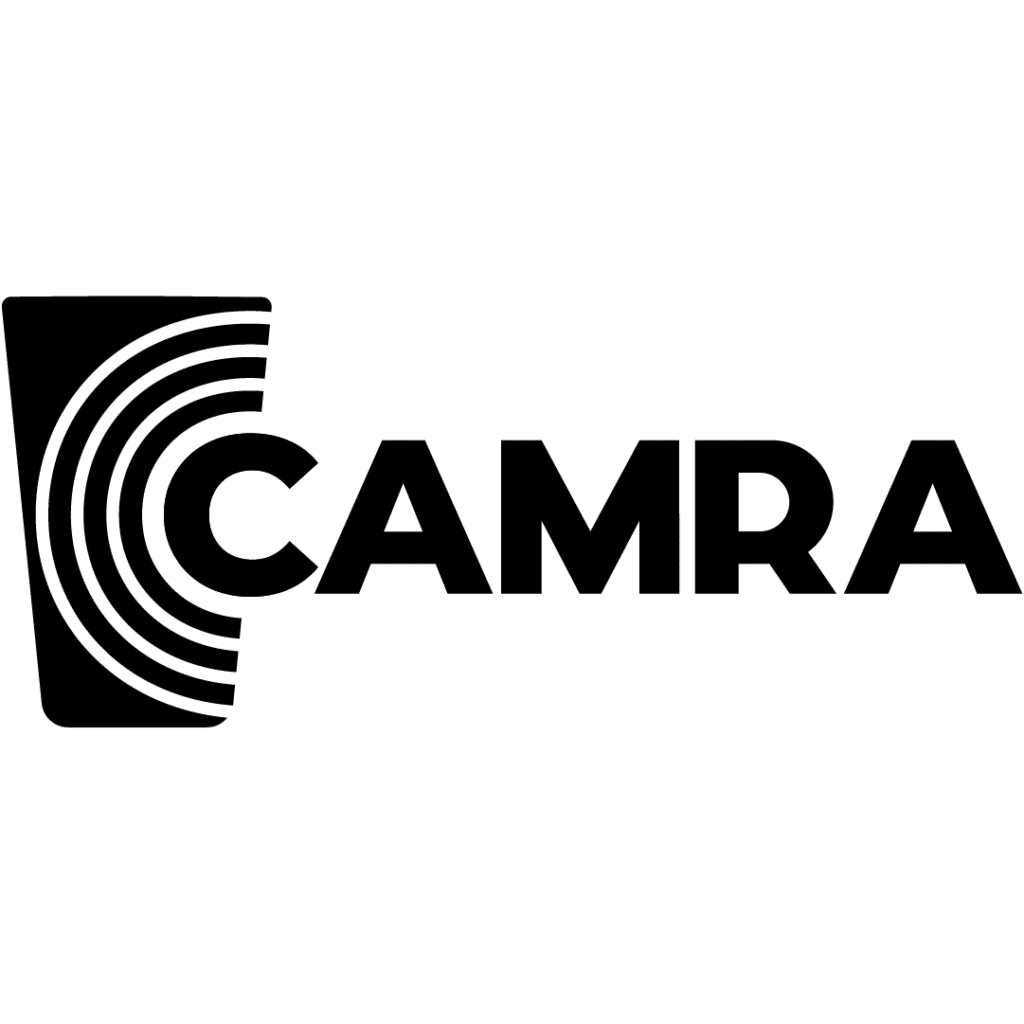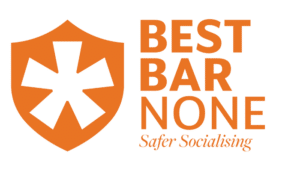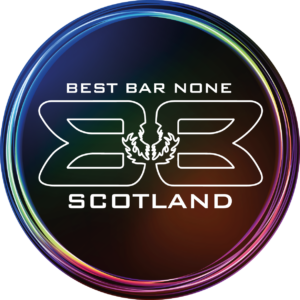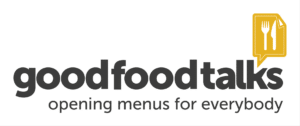Product-sourcing and product quality, including animal welfare
Product-sourcing and product quality, including animal welfare
Publishing date: October 2025
Introduction
Wetherspoon has a fully traceable supply chain for food and drinks, with all food suppliers to the company having a globally recognised food production standard, eg accreditation by the British Retail Consortium or globally recognised equivalent.
There are strict specifications for all products, so that high standards of quality and food safety are met, including:
- detailed product specifications
- complete product traceability
- speciation tests
The company promotes long-term relationships and endeavours to work with suppliers, contractors and partners to minimise environmental impact and encourage sustainable sourcing.
Where possible, British products are used and British farming supported and promoted. For example, all chips are from 100% British potatoes; the beef burgers use 100% British and Irish beef; the sausages use 100% British and Irish pork.
Wetherspoon uses only free-range eggs with the British Lion quality mark from the UK.
Wetherspoon has worked with the Rainforest Alliance since 2008. The Lavazza coffee served (excluding decaffeinated) comes from Rainforest Alliance-certified farms.
All tea served is from Twinings, whose responsible sourcing programme (called ‘sourced with care’) focuses on respecting internationally recognised human rights and improving the quality of life for those communities from which it sources. Twinings purchases tea only from Rainforest Alliance-certified gardens.
Wetherspoon supports brewers of all sizes, across the UK and Ireland, so that customers can enjoy a diverse range of real ales. The company supports over 250 UK brewers, delivering over 3,500 ales through beer festivals, exhibitions, meet-the-brewer events and the promotion and stocking of their beers. Every pub aims to have at least four ales available, at all times, including those locally sourced.
Ethical business
See:
- Supplier charter – October 2025
- Antibribery and anticorruption policy
- Modern slavery and human-trafficking statement 2024/25
Wetherspoon conducts business honestly and with respect for the rights and interests of those involved. It endeavours to ensure that relationships with suppliers and business partners are fair and mutually beneficial. Employees are not permitted to accept bribes or enticements of any kind, including gifts or hospitality.
In sourcing products from many countries, it aims to uphold the International Labour Organization’s agreed standards of labour (including a ban on child labour and forced labour). Suppliers are expected to treat their employees fairly, honestly and with respect for their human rights.
Supplier charter
See: Supplier charter – October 2025
The supplier charter sets out all of the requirements of working with Wetherspoon, including:
- business management principles
- supplier code of conduct
- antibribery and anticorruption policy
- environment and sustainability
- animal welfare policy
- sourcing policies
Supplier code of conduct
This sets out Wetherspoon’s expectation of all suppliers, to ensure that all workers involved in supply chains, contractors and business services are treated honestly, ethically and responsibly – that they are treated well, with fair pay and good working conditions.
Antibribery and anticorruption policy
Wetherspoon conducts all business in an honest and ethical manner and with a zero-tolerance approach to bribery and corruption. It is committed to acting professionally, fairly and with integrity, in all business dealings and relationships.
The antibribery and anticorruption policy is based on the Bribery Act 2010 and applies to any person with whom, or organisation with which, Wetherspoon works, including actual or potential suppliers, agents, advisers and professional advisers, wherever located, and any person who works for Wetherspoon, including employees, directors, consultants, agency workers, volunteers, agents and contractors.
All forms of bribery and corruption are strictly prohibited.
See: Antibribery and anticorruption policy
Animal welfare policy
The animal welfare policy sets out the required standards on animals’ close confinement, genetic engineering or cloning, growth-promoting substances, use of antibiotics, use of routine mutilations, preslaughter stunning and long-distance live transportation. Suppliers are selected and then audited to monitor their compliance with the policy.
Wetherspoon is a member of Sedex – the world’s largest collaborative platform for sharing responsible sourcing data on supply chains (including labour rights, health and safety, the environment and business ethics), used by over 50,000 members in
more than 150 countries.
See:
Whistleblowing
Wetherspoon encourages employees, suppliers and their employees to report and disclose genuine and serious wrongdoing, so that we can deal internally, at an early stage, with any improper activities and investigate accordingly.
All whistleblowing should be reported to the following e-mail address:
[email protected]
Sourcing policies, practices and guidelines
See: Supplier charter – October 2025
Wetherspoon has a responsibility to conduct its business responsibly and ethically – this extends to the sourcing of food, drinks and other products and commodities.
The company:
- recognises animal welfare as a business issue and strives to ensure the highest-possible animal welfare standards across the supply chain.
- commits to looking continually into ways of improving animal welfare, over time, and of providing transparency to customers about where the food served comes from.
- aims to ensure that food products are produced ethically, sustainably and in an environmentally friendly way, with regular risk-based supplier audits completed to check this.
Suppliers of food are expected to hold a globally recognised food safety standard, such as British Retail Consortium (BRC) certification or an alternative global GFSI- accredited scheme – a globally recognised food safety standard, providing assurance that their processes and controls are stringent enough to ensure that the food which they supply is safe.
The company’s supply chain is extensive. Suppliers conform to those accredited assurance schemes relevant to their geographic location and products supplied. These assurance schemes comply with EU legislation as a minimum and include, but are not limited to, Red Tractor, Bord Bia, RSPCA Assured and LRQA Poultry Standard.
| Product | Sourcing and sustainability policy | Current position |
|---|---|---|
| Beef | All beef must be from the UK or Ireland. The use of double-muscled breeds (eg Belgian Blue and Piedmontese) in pure-bred and cross-bred form is not permitted. Farms in the UK and Ireland must operate under the Red Tractor and/or Bord Bia quality-assurance schemes which promote best farming practices. Farmers must provide adequate animal shelter from rain/ sun, particularly at vulnerable times, such as calving. The majority of the animals’ diet must comprise grazed grass and grass-based winter forages. Cattle should be provided with species-specific enrichment activities. | All beef [beef brisket, burgers, beef Madras curry, steak & ale pudding] is sourced from farms in the UK and Ireland, operating under the Red Tractor and Bord Bia quality-assurance schemes which promote best farming practices. There has been no purchase of Belgian Blue or Piedmontese pure-bred or cross-bred animals. |
| Chicken | British chicken must be Red Tractor Assured. All other chicken must be assured under the applicable country schemes, eg the Certified LRQA Poultry Standard, and compliant with EU regulations. Suppliers must commit to the ‘five freedoms’ as defined by the Farm Animal Welfare Committee (2009). The Wetherspoon chicken-sourcing policy is aligned with the Better Chicken Commitment1 and applies to all purchased chicken, including chicken as an ingredient. 1With the following exceptions: – Third-party audits (all supplier audits are completed by J D Wetherspoon-trained and -employed auditors). – 100% of chicken flocks are from higher-welfare outcome breeds. The policy statements below set out time-bound limitations of the expected animal welfare standards for the supply of chicken, based on the Better Chicken Commitment. All dates detailed are to the end of the calendar year. Unless progress steps are defined, the standard is met currently. Suppliers/producers will comply with all EU animal welfare laws and regulations, regardless of the country of production. Antibiotics Current – Critically important antibiotics (currently used for human medicine and defined as the highest priority by the World Health Organization (WHO) to be used as the last resort only and where animals’ health and welfare may be otherwise compromised. No critically important antibiotics given the highest priority by WHO to be used. 2026 – Reduction in line with Wetherspoon’s antibiotic reduction strategy. Antibiotic reduction strategy No prophylactic use of antibiotics in the rearing of chickens used for supply. Suppliers/producers must have a published antibiotic reduction strategy, updated each year and provided to the company. The use of growth promoters is strictly prohibited across all livestock supply chains, including chicken production. No poultry derived from a cloned animal or subsequent generations is to be used. Confinement Current – 100% of chicken flocks to be raised cage free. 2026 – 100% of chicken flocks to be raised cage free and without the use of multitier systems. Stocking density Current – Must not exceed 33kg/m². 2026 – Must not exceed 30kg/m². Breeds The breeds considered to have higher welfare outcomes are Hubbard JA757, 787, 957, 987, Rambler Ranger, Ranger Classic and Ranger Gold and others which meet the criteria of the RSPCA Broiler Breed Welfare Assessment Protocol. Current – At least 25% of supply must come from breeds with higher welfare outcomes. 2026 – 100% switch to breeds with high welfare outcomes. Environmental standards – light Current – Min 20 lux. 2026 – Min 50 lux, including natural light. Perch space 2026 – At least two metres of usable perch space and two pecking substrates per 1,000 birds. Air quality Requirements are laid down in annex 2.3 of the EU broiler directive and are regardless of stocking density. Concentration of ammonia (NH3) will not exceed 30ppm. Concentration of carbon dioxide (CO2) will not exceed 3,000ppm. When external temperature exceeds 30˚C in the shade, internal temperature will be no more than 33˚C. When external temperature is below 10˚C, average internal relative humidity, measured inside the house over 48 hours, will not exceed 70%. Thinning Thinning is to be discouraged. 2026 – Limited to one thin per flock. Beak-trimming Current – Percentage levels to be determined. 2026 – 100% reduction on current levels. Live transport times Must not exceed eight hours. Live exports are prohibited. Lairage conditions Birds must be unloaded and slaughtered, after being assessed, as soon as possible after slaughterhouse arrival. If birds are not killed straight away, they must be provided with: – drinking water, suitable enough for the number of birds. – feed, if not slaughtered within 12 hours of arrival; after that, at regular intervals, suitable enough for the number of birds. – enough space to house all animals; if in containers, they must be stable, must not allow excreta to fall on the animals below and must be suitably ventilated. – an environment which keeps them safe from potential injury and predators. – shelter/shade from extreme weather. – protection from sudden noises. – lighting suitable for inspections to be carried out. – natural or mechanical ventilation to protect them from extreme temperatures, as well as from harmful levels of humidity and ammonia. Preslaughter stunning When suitable technology is commercially available, controlled atmospheric stunning using inert gas or multiphase systems, or effective electrical stunning without live inversion, will be adopted. | The Wetherspoon chickensourcing policy is aligned with the Better Chicken Commitment and applies to all purchased chicken, including chicken as an ingredient. Unless progress steps are defined, the standard is met currently. Chicken is sourced as follows: UK – chicken wings Europe – chicken bites China – chicken bites, chicken strips, grilled chicken breast Thailand – buttermilk chicken, chicken bites, chicken in curries British chicken is Red Tractor Assured. All other chicken is assured under other schemes (eg the LRQA Poultry Standard) and is compliant with EU regulations. |
| Coffee, sugar, cocoa and tea | Coffee: 100% Rainforest Alliance certified to the Sustainable Agriculture Network (SAN) standard, UTZ certified or Fairtrade. Sugar (for hot drinks and when used as an ingredient): 100% Fairtrade certified or Bonsucro (formerly known as The Better Sugarcane Initiative – BSI) or Red Tractor Farm Assurance accreditation for sugar sourced in the UK. Suppliers are required to provide evidence of traceability down to sugar mill level. Cocoa (for hot drinks and when used as an ingredient): 100% Rainforest Alliance certified to the Sustainable Agriculture Network (SAN) standard, UTZ certified or Fairtrade. Tea: 100% Rainforest Alliance certified. Tea bags must be fully biodegradable and plastic free. Suppliers are required to provide documentary evidence confirming certification, where relevant. | Coffee (Lavazza): 100% Rainforest Alliance certified. Lavazza decaffeinated coffee is not Rainforest Alliance certified. Sugar: White/brown sugar sticks (for hot drinks) – 100% Fairtrade certified. Information on the source of sugar as an ingredient of food products is being gathered. Cocoa (July 2024): 15% of products containing cocoa are certified with UTZ, Rainforest Alliance or Fairtrade; 55% uncertified; 30% not known. Tea: Twinings tea bags are 100% biodegradable and plastic free. More information on Twinings’ responsible sourcing programme can be found here: https://twinings.co.uk/ pages/sourced-with-care |
| Cotton | The term ‘cotton’ refers to all products containing cotton sourced within the supply chain. This includes suppliers of services involving the sourcing of cotton, such as bed linen and towels. All cotton to be sourced from certified sustainable sources, such as the Better Cotton Initiative or Cotton Connect’s REEL standard, by the end of 2025. Achieve no deforestation across deforestation-linked commodities by the end of 2025 (2024 for products in Ireland and Northern Ireland). www.bci.org | Hotel linen: – towels: 100% BCI – duvet covers, pillow cases and sheets: 70% BCI, 30% polyester – Employee uniforms: 35% BCI, 65% polyester – Promotional T-shirts: TBC |
| Duck | Duck must be sourced from British farms which conform to the Red Tractor Assurance for Farms – Duck Standards. The code of recommendations for the welfare of ducks (DEFRA) must also be followed. Included in the code are recommendations on accommodation design, space standards, stockmanship and emergency precautions. Foie gras is not permitted. | The company does not currently sell any products containing duck. The company does not sell foie gras. |
| Eggs | All eggs (100% of eggs), including liquid eggs and those used as an included ingredient in supplied products, must be from hens reared in free-range systems and cage free. Fresh whole eggs must be sourced in the UK, be RSPCA assured and display the British Lion quality mark. | 100% of eggs, including those used as an included ingredient in supplied products, are from hens reared in free-range systems and cage free. 100% of fresh whole eggs are sourced in the UK and are all RSPCA assured and display the British Lion quality mark. Occasionally, availability issues may require the sourcing of non-UK eggs. |
| Exotic fruits | Bananas: UTZ certified, Rainforest Alliance Lemons and limes: vegan, plant-based wax permitted No air freighting, except in exceptional circumstances. | Bananas: UTZ certified, Rainforest Alliance and sourced from an international company with a high standard of sustainability core values and international social accountability standards. Lemons, limes and other citrus fruits: Class 1, sourced from a variety of countries (including Argentina, Brazil, Cyprus, Greece, Italy, Morocco, South Africa, Spain, Turkey, Uruguay and USA). Lemons and limes: Vegan (plant-based wax). |
| Fish and shellfish | Fish and shellfish may be wild sourced or farm sourced. Cod and haddock must be sourced from Marine Stewardship Council (MSC) fishing grounds in the North Atlantic. The company has achieved, and is committed to maintaining, an MSC Chain of Custody certification. Scampi must be sourced from UK and Ireland fishing grounds with a minimum average Marine Conservation Society (MCS) score of 3.2. Tuna must be dolphin friendly, caught using purse seines and free from any fish aggregating device (FAD). Farmed fish (including fish used as an ingredient) must have been reared and harvested in controlled water environments certified by the Aquaculture Stewardship Council (ASC). | All fish is wild; no farmed fish is used. Cod and haddock are sourced from Marine Stewardship Council (MSC) fishing grounds in the North Atlantic. The company has achieved MSC Chain of Custody certification. Scampi is sourced from fishing grounds around the UK and Ireland. Tuna is dolphin friendly, caught using purse seines and free from any fish aggregating device (FAD). |
| Herbs | Coriander and basil – must be sourced predominantly from the UK. Air freighting not permitted. | |
| Lamb | New Zealand lamb – produced under the Alliance Group Farm Assurance Programme (designed to ensure that suppliers consistently meet high food and animal welfare standards in their farming practices). British lamb – from farms operating under the Red Tractor Farm Assurance scheme or Farm Assured Welsh Livestock Scheme. Australian lamb – from farms operating under the Australian Animal Welfare Standards and Guidelines for sheep. Lamb must be outdoor reared, free range and (where possible) pasture fed. No use of confinement systems for livestock. Free from genetic modification. | The company does not currently sell any products containing lamb. |
| Leather | Any animal-derived leather used in furnishings must be food-industry by-products. | |
| Milk | All fresh milk (100% of fresh milk) must be sourced in the UK from cows reared under the Red Tractor Farm Assurance Dairy Scheme. All cows (100%) must be untethered, with exercise provided daily. The prophylactic use of antibiotics and growth promoters is not allowed. See: Antibiotics policy The milk produced must be routinely tested for residual antibiotics. | All fresh milk used in the UK is sourced from cows reared under the Red Tractor Farm Assurance Dairy Scheme. Milk is currently sourced from about 100 farms audited directly by Red Tractor. All fresh milk used in Ireland is produced under the Bird Bia Sustainable Dairy Scheme. |
| Palm oil | ‘Palm oil’ refers to any product which contains palm oil or palm kernel oil, including all raw materials, intermediate ingredients, fractions and derivatives used in food and personal care or cleaning products. For cooking purposes – roundtable sustainable palm oil (RSPO)-certified oil, meeting the global production and supply chain requirements for sustainable palm oil. Wetherspoon will complete traceability tests with suppliers, back to first importer. All palm oil used as an ingredient in supplied products must be RSPO certified. No new products are listed without this certification. This includes palm oil products or derivatives, such as cleaning or personal hygiene products. | For cooking purposes – roundtable sustainable palm oil (RSPO)-certified oil. All palm oil used as an ingredient in supplied products is RSPO certified. The company is working with suppliers to identify other areas which may use palm oil products or derivatives, such as cleaning or personal hygiene products. |
| Pork | Pork products must be sourced from within the UK and EU, conforming to the appropriate national standards, based on Council Directive 2008/120. The minimum space permitted, per pig, is 2.25m2. For outdoor-breeding pigs, the stocking density must not exceed 30 sows per hectare. The use of sow stalls is not permitted. Farrowing crates are not permitted for sows, with the exception of a maximum period of five days before birth to 28 days afterwards. | Pork products are sourced from within the UK and EU from producers which conform to the appropriate national standards, based on Council Directive 2008/120. Many of the national standards exceed the minimum requirements. Pork products are sourced as follows: Sausages – 100% UK sourced Bacon – UK and EU sourced Ham – UK and EU sourced |
| Potatoes | There is no specific potato size or variety specification. Where possible, potatoes which are British/Irish grown and processed are preferred. | Potatoes – 100% UK sourced |
| Salad and vegetables (excluding potatoes) | Where possible, the company will prioritise the sourcing of seasonal produce from the UK and Ireland. Air freighting is not permitted, except in exceptional circumstances. | Sourced seasonally from the UK, Europe and north Africa. Peas – 100% UK sourced |
| Soy as animal feed | All soy used as animal feed in the supply chain must be certified sustainable, according to a recognised certification scheme, such as Round Table on Responsible Soy Association (RTRS) and ProTerra; these are the most comprehensive and widely accepted associations working towards assuring sustainable sourcing of soy. Sustainable soy policies and/or practices ensure that soy is not coming from areas of existing or formed rainforests, primary forests, high-conservation-value lands, high-carbon-stock forest areas or illegally deforested areas in the Amazon Biome. No new products will be listed without this certification for animal feed. | The data-capturing process is under way and we currently understand, for 50% of our chicken products, that our suppliers have implemented sustainable soy policies and/or practices to ensure that soy is not coming from areas of existing or formed rainforests, primary forests, highconservation- value lands, high-carbon-stock forest areas or illegally deforested areas in the Amazon Biome. UK beef is produced using predominantly a forage-based diet with only a small amount of soy as animal feed, on which origin data is being captured. |
| Soy as an ingredient | All soy used as an ingredient or compound ingredient, including soy oil, in the supply chain must be certified as sustainable according to a recognised certification scheme, such as Round Table on Responsible Soy Association (RTRS) and ProTerra; these are the most comprehensive and widely accepted associations working towards assuring sustainable sourcing of soy. No new product will be listed which has soy as an ingredient, if the origins cannot be confirmed as sustainable. Suppliers are encouraged to work towards achieving 100% traceability of soy to the farm on which it was grown. Wetherspoon will conduct traceability audit tests with suppliers on the origins of soy as an ingredient. | The data-capturing process is under way. |
| Timber and wood fibre | The terms ‘timber’ and ‘wood’ refer to any product made from timber or wood-based items, including card, tissue, fibreboard, pulp and paper. The policy also applies to all timber and timber-related products used in construction, casing and furniture. All wood and paper products to be sourced from certified sustainable sources, eg the Forest Stewardship Council (FSC) or Programme for the Endorsement of Forest Certification (PEFC), by the end of 2025. Achieve no deforestation across deforestation-linked commodities by the end of 2025 (2024 for products in Ireland and Northern Ireland). | The data-capturing process is under way. |
| Turkey | Turkey must be sourced from suppliers working to the DEFRA guidance ‘Codes of recommendations for the welfare of livestock – turkeys’. |
